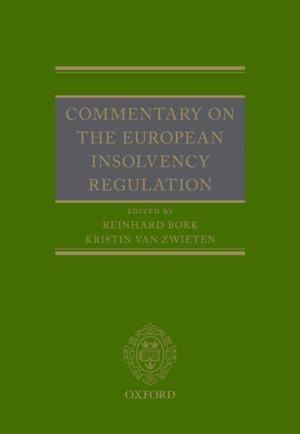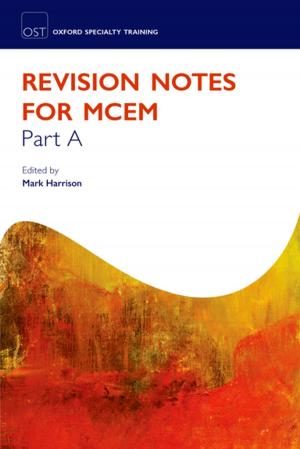Shari'a and Social Engineering
The Implementation of Islamic Law in Contemporary Aceh, Indonesia
Nonfiction, Reference & Language, Law, Comparative, Social & Cultural Studies, Social Science| Author: | R. Michael Feener | ISBN: | 9780191668074 |
| Publisher: | OUP Oxford | Publication: | December 12, 2013 |
| Imprint: | OUP Oxford | Language: | English |
| Author: | R. Michael Feener |
| ISBN: | 9780191668074 |
| Publisher: | OUP Oxford |
| Publication: | December 12, 2013 |
| Imprint: | OUP Oxford |
| Language: | English |
This book seeks to open new lines of discussion about how Islamic law is viewed as a potential tool for programs of social transformation in contemporary Muslim society. It does this through a critical examination of the workings of the state shari'a system as it was designed and implemented at the turn of the twenty-first century in Aceh, Indonesia. While the empirical details of these discussions are unique, this particular case presents a remarkable site for investigating the broader issue of the impact of instrumentalist, future-oriented visions of Islamic law on modern Muslim calls for the state implementation of Islamic law. In post-tsunami/post-conflict Aceh, the idea of shari'a as an exercise in social engineering was amplified through resonance with an increasingly pervasive rhetoric of 'total reconstruction'. Based upon extensive fieldwork as well as critical readings of a wide range of archival materials, official documents, and local publications this work focuses on the institutions and actors involved with this contemporary project for the state implementation of Islamic law. The individual chapters are structured to deal with the major components of this system to critically examine how these institutions have taken shape and how they work. It also shows how the overall system was informed not only by aspects of late twentieth-century da'wa discourses of Islamic reform, but also modern trends in sociological jurisprudence and the impact of global models of disaster relief, reconstruction, and development. All of these streams of influence have contributed significantly to shaping the ways in which the architects and agents of the state shari'a system have attempted to use Islamic legislation and legal institutions as tools to steer society in particular desired directions.
This book seeks to open new lines of discussion about how Islamic law is viewed as a potential tool for programs of social transformation in contemporary Muslim society. It does this through a critical examination of the workings of the state shari'a system as it was designed and implemented at the turn of the twenty-first century in Aceh, Indonesia. While the empirical details of these discussions are unique, this particular case presents a remarkable site for investigating the broader issue of the impact of instrumentalist, future-oriented visions of Islamic law on modern Muslim calls for the state implementation of Islamic law. In post-tsunami/post-conflict Aceh, the idea of shari'a as an exercise in social engineering was amplified through resonance with an increasingly pervasive rhetoric of 'total reconstruction'. Based upon extensive fieldwork as well as critical readings of a wide range of archival materials, official documents, and local publications this work focuses on the institutions and actors involved with this contemporary project for the state implementation of Islamic law. The individual chapters are structured to deal with the major components of this system to critically examine how these institutions have taken shape and how they work. It also shows how the overall system was informed not only by aspects of late twentieth-century da'wa discourses of Islamic reform, but also modern trends in sociological jurisprudence and the impact of global models of disaster relief, reconstruction, and development. All of these streams of influence have contributed significantly to shaping the ways in which the architects and agents of the state shari'a system have attempted to use Islamic legislation and legal institutions as tools to steer society in particular desired directions.















